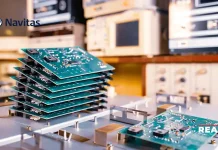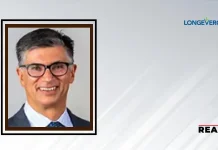RYSE, innovators of the first ever aftermarket device to motorize window shades, has introduced RYSE SmartShades to fill a gap in the $158 billion global Smart Home industry. With just 8% of all shades being motorized, the company’s founder and CEO, Trung Pham, says Smart Shades are the last missing piece in the Smart Home industry which is slated to grow by nearly 55% over the next eight years alone.
RYSE is a technology company that creates smart devices to automate window coverings for consumers and businesses alike. The devices are controllable via mobile, voice or schedules and are designed to save energy in any space.
“I founded RYSE after my own disappointing experience,” said Pham. “I purchased 9’ x 9’ shades for my apartment and when I went back to the retailer to buy a DIY motor for them, they told me it was impossible. Nothing like that existed. Instead, I would have to replace every shade at a cost of $1,500 per window. I was shocked that nothing existed to motorize shades people already owned, to avoid exorbitant replacement costs. That’s how RYSE was born.”
RYSE SmartShades is the only retrofit/after-market device designed to motorize window shades that are manually operated with a beaded chain. Owners can set up and automate their shades in less than five minutes. Controllable by smartphone, voice or set to a schedule, SmartShades integrate with Smart Home platforms from Apple, Amazon and Google. Sensors and weather-based automation help save energy.
Also Read: Alfred and Wi-Charge Deliver the First Wirelessly-Charged Smart Locks
Compared to alternative brands that retail for more than $1,000 per window, SmartShades are affordable luxury that retail for just $169.
With five granted patents, and three patents pending, Pham says RYSE has other products in the queue to be introduced to market, including SmartDrapes, SmartBlinds and CordlessShades. What’s more, the company was awarded CDN$4 million in environmental grants to automate shades in commercial buildings, saving up to 24% in cooling costs and 74% in lighting energy costs, on average.
“In addition to filling a gap that exists in an enormous market that’s growing exponentially year-over-year, SmartShades save money and the environment,” said Pham. “By 2030, all new buildings are required to be net-zero in carbon emissions. We’re helping commercial building owners achieve this goal. They love it and we love it, too.”




